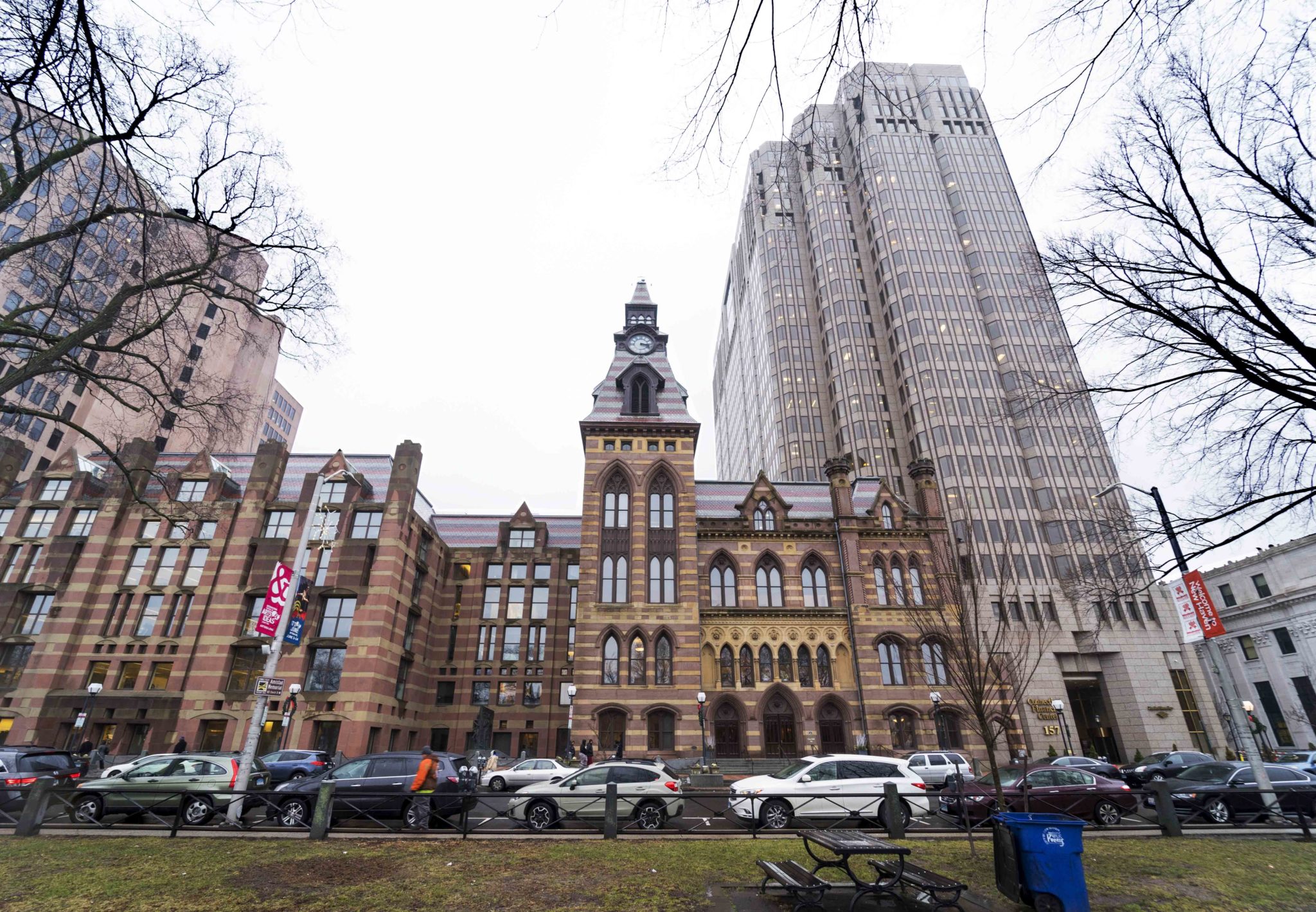
Nat Kerman
The New Haven Board of Education voted to approve a $197 million proposed budget for the school district on Monday, three days before its deadline to submit the proposal to the mayor.
The budget request — which was recommended by New Haven Public Schools administrators, and will eventually go before the Board of Alders — represents a $10 million increase from last year. The school board approved the proposal even though individual members had previously said they would not support such a large budget request. At the meeting, resident voiced concerns over the city’s budget troubles, which they fear will result in program cuts in schools.
“This [budget] still means further collaboration, further work, further adjustments,” New Haven Chief Operating Officer William Clark said. “In order to continue the status quo, we need more revenue … based on inflation and school staff cost increases.”
At a Feb. 12 meeting, school board members called on the school district administration to provide the board’s Finance Committee with a $10 million reduction recommendation, including a summary of transportation, part-time personnel costs, and contractional services reductions by the next Board of Education meeting. But Clark announced that the administration’s budget proposal remains the same because every request in it is necessary for the district to function. In a 4–1 vote, school board members approved Clark’s budget. Mayor Toni Harp, who will now tackle the budget and submit a finalized proposal to the Board of Alders, abstained from voting.
Still, school board members raised concerns about the budget. Ed Joyner, who voted against approving it, said that since he has been on the school board, members have not received enough information to make educated decisions about the district’s financial state.
“It’s too quick, we need more information,” Joyner said. “It would be irresponsible for me to approve this budget.”
Although he acknowledged that the Board of Alders might not approve a $10 million hike in the school system’s budget, President of the Board Darnell Goldson urged school board members to approve the budget proposal, because Harp will vet it before it is sent to the Board of Alders. In the past, Goldson has echoed Joyner’s concerns that board members do not receive sufficient information about the school system’s funding — complaints that led Clark to begin distributing monthly financial reports this month.
During the public comment section of the meeting, before the budget was approved, students and residents alike advocated against cuts to programs in schools.
Kristen Hopes-McFadden read a statement drafted by the New Haven Public Schools Advocates — a parent activist group formed during the prolonged superintendent search that finally ended in November — urging school board members to de-prioritize administrative and supervisory positions and attempt to renegotiate larger contracts in food service and transportation. The group also advocates for the district to prioritize “special” programs involving the arts, foreign languages, physical education and other subjects.
“Though we acknowledge the grim reality of the district’s financial situation, we remind the Board of Education of its obligation to make budget-reduction decisions in keeping with its mission to put ‘Kids First,’” Hopes-McFadden read from the statement.
James Jeffrey, an eighth-grade student in the district, said he was saddened when he learned that an after-school arts program at his school would end in March. He explained that he did not want to see the such programs neglected — programs to which he attributes his acceptance to the prestigious Hopkins School.
Jacob Spell, a student representative on the school board, said he has heard concerns from students over the prospect of program cuts and even school closings. He urged board members to find ways to avoid such cuts.
“I am witnessing how such talks [about school closings] have been damaging to the morale of entire school communities,” Spell said. “Since we as the board serve a dynamic population, will we take a dynamic approach to discussing budget cuts or will certain activities in schools be prioritized over others?”
At the meeting, Goldson said in response that the board is willing to make tough decisions, but that it is focused on long-term financial restructuring and does not plan to cut programs or staff members unless absolutely necessary.
“Our intention is to cut as far away from classrooms as possible,” he said.
Board of Education meetings take place on the second and fourth Monday of each month.
Isabel Bysiewicz | isabel.bysiewicz@yale.edu







